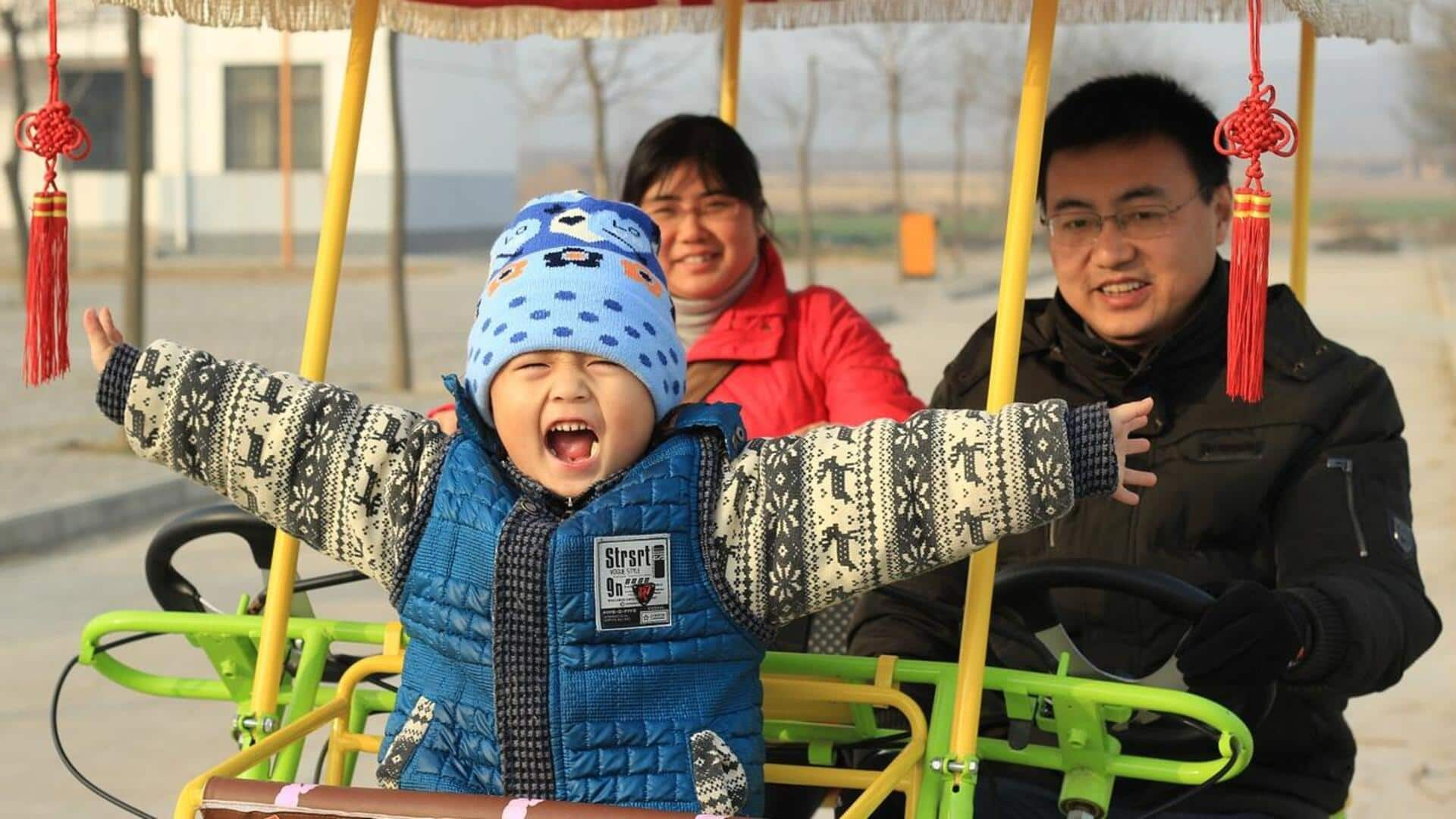
China offers parents annual subsidy of $500 for every child
What's the story
China has announced a new policy to encourage families to have more children. Starting January 1, 2025, parents will receive an annual subsidy of 3,600 yuan (approximately $500) for each child until they turn three. Over three years, this could amount to a total of 10,800 yuan per child. Beijing's state broadcaster CCTV called this "a major nationwide policy aimed at improving public wellbeing," as reported by AFP.
Declining birth rates
Rapidly declining birth rate
China's birth rate has been falling for years, with only 9.54 million births recorded last year. This is a stark contrast to the 2016 figure, which was approximately double the number of births recorded last year. The country's population also shrank by 1.39 million last year and is aging rapidly, with nearly 310 million people aged over 60 in 2024.
Unsuccessful measures
Relaxing the 1-child policy
China has already tried to increase birth rates by relaxing its one-child policy. In 2016, it allowed couples to have two children, and in 2021, the limit was increased to three. For years, local governments have also experimented with a variety of incentives, ranging from tax cuts, housing benefits, and cash transfers to increased maternity leave. However, these measures have failed to reverse the trend.
Financial burden
High cost of raising a child
The YuWa Population Research Institute estimates that raising a child until they turn 18 costs around 538,000 yuan ($75,000) in China. In major cities like Shanghai and Beijing, the cost is even higher at over 1 million yuan and 936,000 yuan, respectively. This financial burden has made many young couples hesitant to have more children despite government incentives.
Economic factors
Economic factors and youth disillusionment
China's economic slowdown and rising youth unemployment are also major factors impacting family planning decisions. Many young people feel disillusioned as housing prices soar and good job opportunities often go to those with family connections. This has led some to adopt an "involution" mindset—choosing to step back from societal expectations such as marriage and having children.